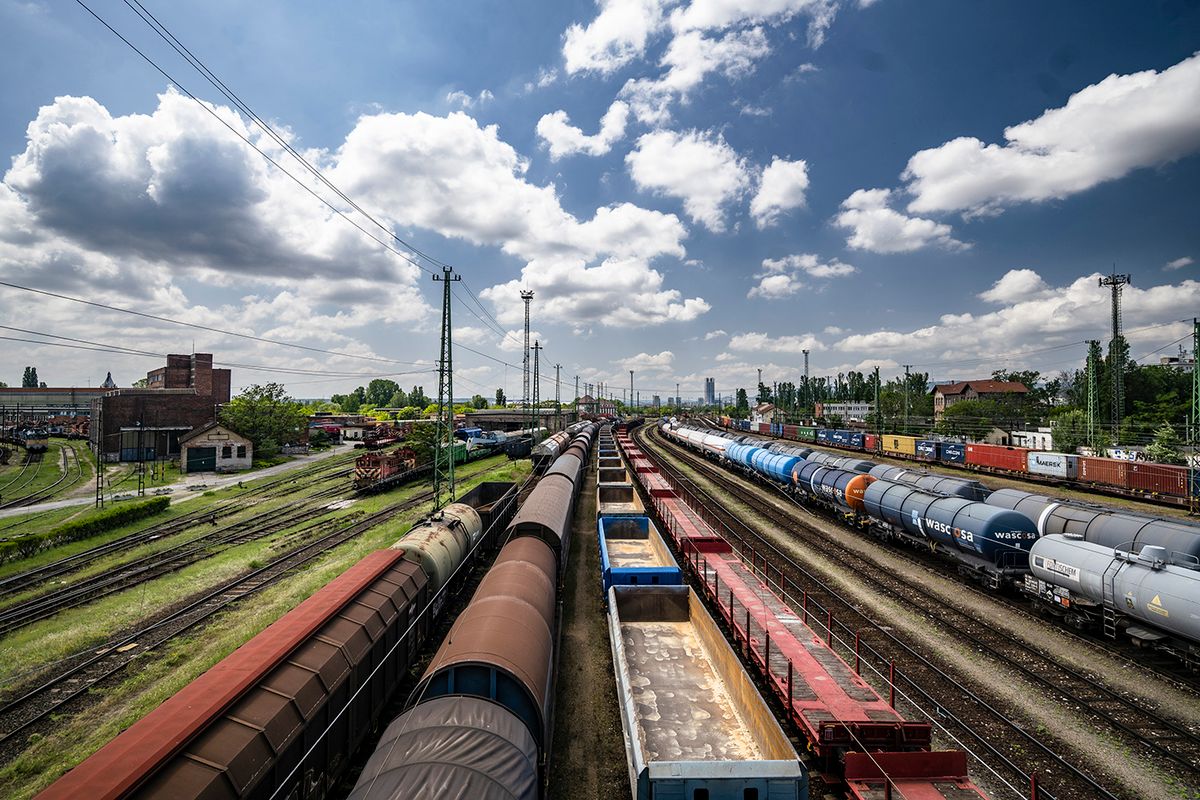Unannounced mid-year 14% track access charge increase in Hungary 22/05/24
< ZurückSource: https://www.vg.hu/logisztika/2024/05/vasuti-palyadij-emeles
They dealt a huge blow to the Hungarian railways
In the past 20 years, it has not happened that the fee to be paid for Hungarian railway tracks has been increased during the year. Without a competitive freight rate, there is no competitive service, and the migration of goods from Hungarian railways can continue, writes the Hungrail Hungarian Railway Association in its announcement.

Higher fees on worse courses
The increase of more than 14 percent will take place during the year, from September 1. In the meantime, the condition of the domestic track is constantly deteriorating - Hungrail points out - instead of increasing the competitiveness of the railway freight sector, which is of paramount importance for the national economy as a whole, in a predictable and sustainable way, by restructuring the track usage fee structure aimed at encouraging rail freight transport.
It should be priced stably in addition to a variable track fee
The sudden increase differs from the practice used until now, as the railway infrastructure operators (MÁV Zrt., GYSEV Zrt.) must announce their fees 2 years in advance, precisely in order to offer predictable conditions and services to the more than 56 contractor railway companies operating on the domestic railway network for. This upsets the planning of the annual budget of the transport companies, while from the client's side, in the case of tenders, a clear expectation is stable, pre-fixed annual pricing. All this is compounded by the negative impact of the deteriorating track conditions on the timetable, further reducing the reliability and sustainability of the railway.
The increase will most likely cause more damage to the state budget than the revenue expected from it.
The loss of market share of domestic entrepreneur railway companies to railway companies carrying out transport tasks on the routes that bypass our country will accelerate, and more traffic will be transferred to the overloaded public roads, instead of the trucks going to the railways, with intermodal transport solutions.
Contracts should be reviewed
More than half of the carriers surveyed by Hungrail have not yet been able to include in their fees the additional costs caused by slow signals and detours due to deteriorating track conditions. In the past two years, high traction electricity prices and general cost increases in an inflationary environment all caused cost increases that could not, or only partially, be passed on to customers. Due to the unplanned increase in costs, the companies will be forced to revise their contracts, which will lead to an increase in transport fees, and the cost increase that has not been passed on until now may also be included in the fees.
In addition, as a result of this unbalanced situation, many companies in recent years have postponed the developments that would have enabled them to operate more efficiently and economically with, for example, more modern locomotives, vehicle fleets or digitized solutions, which would be greatly needed. Hungrail points out: the entrepreneurial railway companies will not raise their fees during the year in the hope of extra profit as a result of the decision, but rather try to cover the increased real costs.
Freight traffic also finds a way outside of Hungary
The basic condition for Hungary to become a key country in terms of transport is that freight traffic does not bypass our country, and that domestic small and medium-sized enterprises, as well as large companies of strategic importance, are maintained in the international trade circulation. This requires reliable, predictable and sustainable rail freight transport. There is no competitive freight rate without a competitive track usage fee. In light of this, Hungrail is taking the initiative to continue the measures to improve competitiveness that have already been started, and to prepare a competitiveness package that will improve rail freight transport, instead of a mid-year fee increase that affects competitiveness.
If the state does not compensate for the fee increase, then a reverse modal shift can be realized: especially in the case of railway services for 700 small and medium-sized enterprises, which regularly generate only 1-2 wagons (single car freight transport by rail). To increase the transport costs of export products transported by rail ,
traders will react immediately and shift their purchases to countries with lower freight costs, due to lower track charges and rail subsidies.
And the price of imported products will increase, which will fuel inflation. Transit transport already largely avoids our country, which reduces our role as a key state in the region. In the medium term, it may lead to the shutdown of capacities, which means that the companies will not be able to meet the investments that appear in our country, such as the battery and back-end service industry, as well as the constantly growing logistics needs of vehicle manufacturers. Currently, the capacities are adapted to the transport of 50 million tons of goods per year, if we want to increase this by + 25 million tons within 4-5 years, then the railway must first be put in place.





